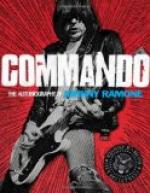At Pienaars River I made the acquaintance of General Celliers, who was loudly proclaiming the way in which he would squash khaki if only the burghers would fight. He is the exception to the rule that all braggarts are cowards. Most of the braggarts have gradually disappeared from the scene, but the deeds of this hero were always in accordance with his words.
We heard afterwards that a detachment of the enemy had followed us, but we had had too great a start, and had besides taken a short-cut of which they knew nothing. It would not have been easy for the khakies to overtake a well-mounted commando like President Steyn’s.
We were also told that the enemy knew of the arrival of President Steyn, which strengthened my belief that the two suspicious characters at Zoutpan were the informers. Whenever we, as the attacking party, made prisoners, they always declared that they had known all about our plan of attack—probably to discourage us with the thought that through the treachery of our own people the enemy always knew all about our movements.
For a long way we followed the same road that we had taken with Commandant Boshoff to Rustenburg. We arrived safely at Waterval-Boven (President Kruger having already retreated from Machadodorp), where we stayed a few days and heard the famous Battle of Dalmanutha (August 27)—the most awful roar of cannon that I have ever heard.
From Waterval-Boven we went to Nelspruit, to which President Kruger had moved in his railway-home. We gave our horses a week’s rest and passed the time fishing and hunting. We were content there, as we got plenty to eat, and our horses, too, were well fed—an important matter to us just then. Circumstances were forcing us to attach much value to all sorts of trifles that we would formerly not even have noticed.
If once one has suffered the pangs of hunger, one learns to value the comfort and luxury of home; and if one has wandered about for weeks without seeing woman or child, one learns to appreciate their gentleness and charm and to understand Schiller’s Zuechtige Hausfrau in ’Das Lied von der Glocke.’ How often in our wanderings we longed for good literature during our long, tiring, monotonous rides! And how terrible was the thought of the moral hurt we were suffering—voluntarily in a way, yet forced to it by a sense of honour and duty. For in this lay the grievousness of the war, that a powerful nation—influenced by a few unscrupulous leaders—was trying to annihilate a small nation that demanded the right of existence, and was therefore forced to defend that right. It was a happy time for us when we had the opportunity of turning our thoughts towards literature and other things than commando work.




